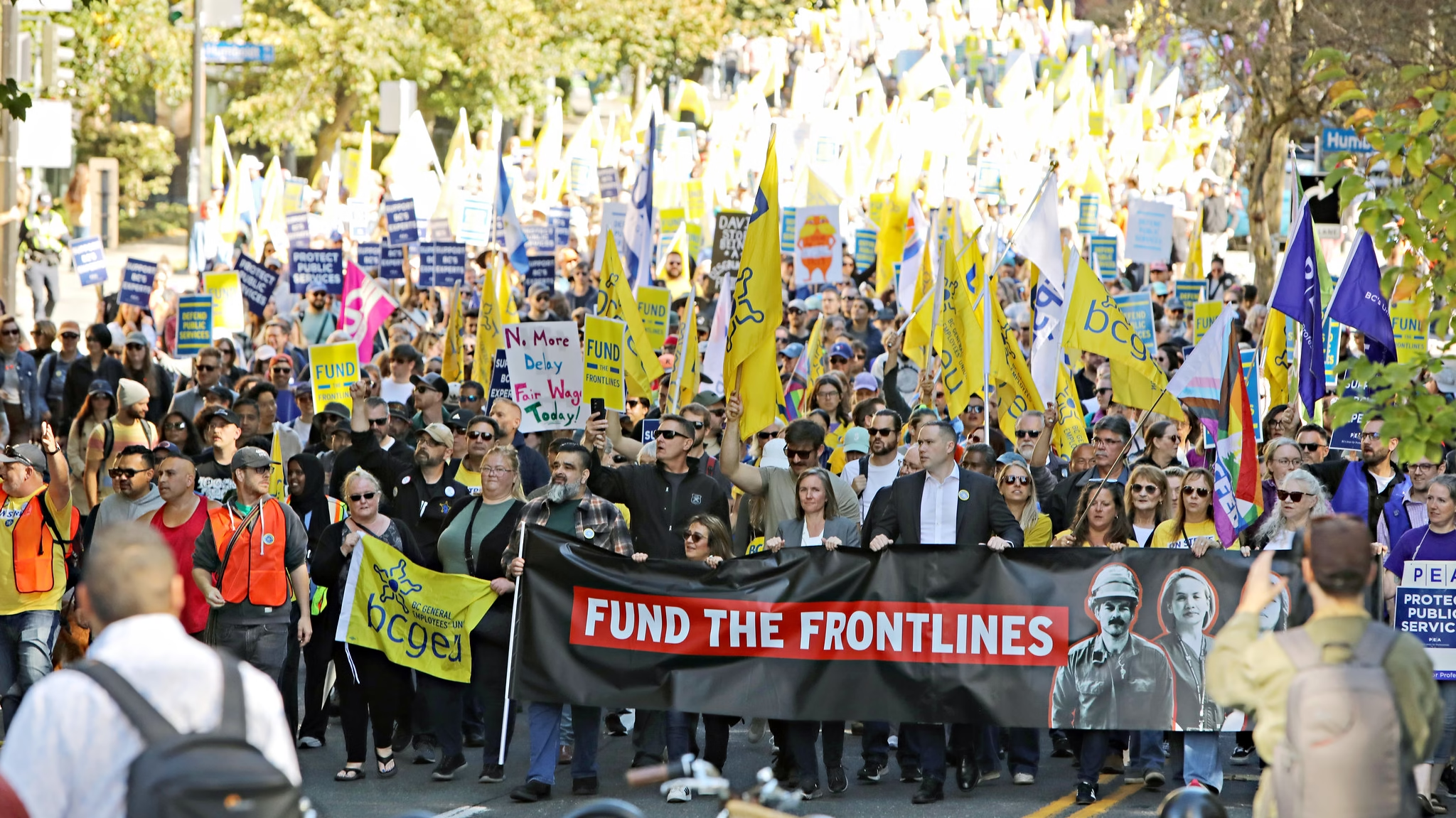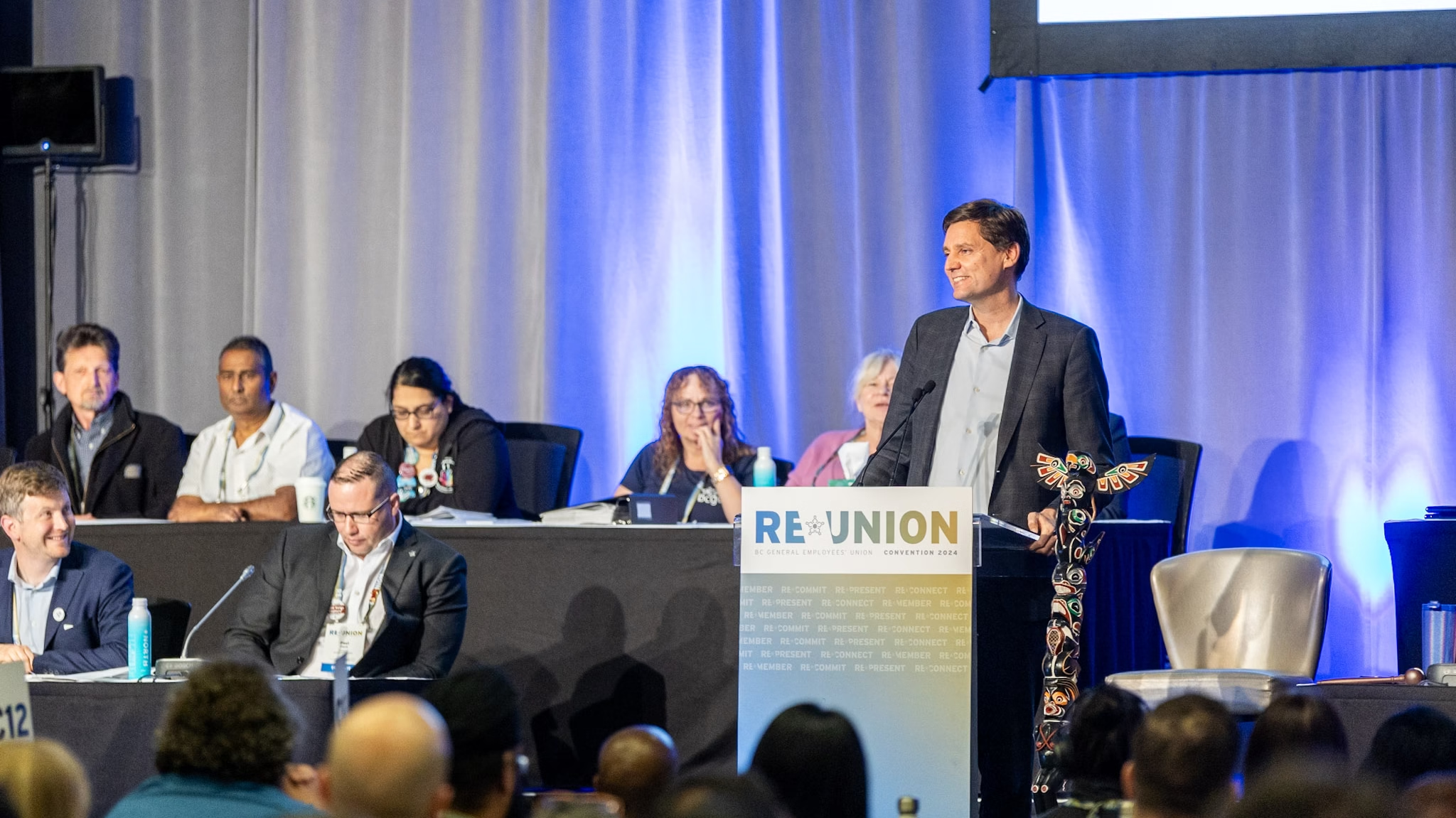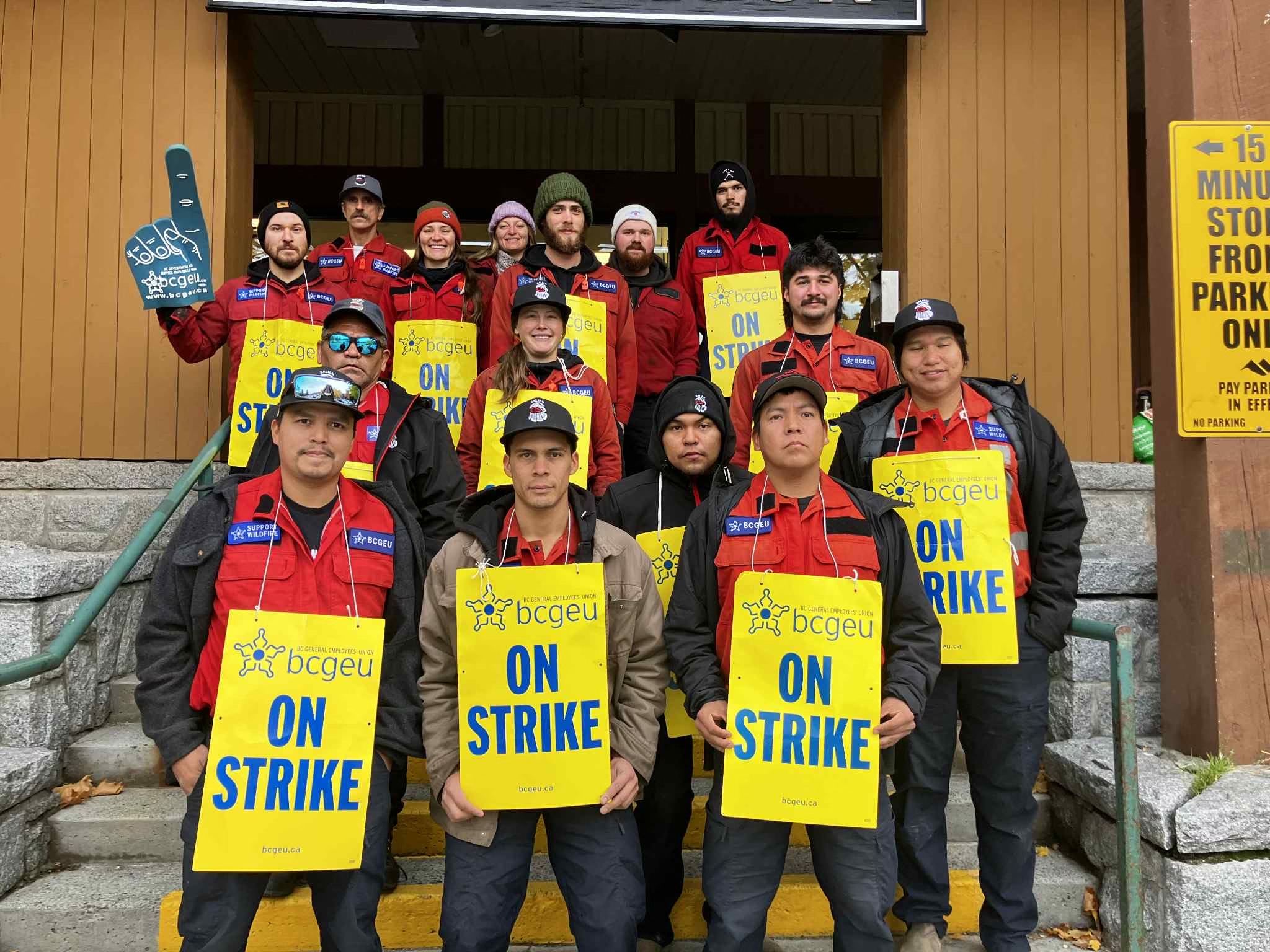With the longest public service strike in British Columbia’s history now over, the NDP-led government appears to have lost the support of many frontline public service workers. The government refused to negotiate for weeks, making low offers, and misrepresenting the workers’ demands. Some rank-and-file workers are now calling for a break with the political party.
70% of 34,000 B.C. public service workers bargaining under the banner of the BC General Employees Union (BCGEU) voted to ratify a tentative agreement reached on Oct. 26. This happened following eight weeks of a progressive strike and coordinated job actions to gradually increase pressure on the Eby administration.
But despite this decisive majority, not everyone is happy with the result, and the cost of living has a lot to do with it. Employees of B.C.’s NDP government, which describes itself as “pro-worker,” are paid less than their peers in other provinces or government levels, while a two-bedroom apartment in Victoria costs nearly $2,700 a month.
Sarah*, a BCGEU shop steward interviewed by The North Star, says the wage gains won after the strike are weaker than those in the last tentative deal. She voted no, calling the proposed 3%-a-year raise for four years “unacceptable with inflation.” She says reactions at a late-strike meeting were split and that some were discouraged and simply ready to accept the deal and move on.
“Some of my lowest-paid coworkers are still paid the $51,000 a year starting and benefits,” says Sarah. Many of these frontline workers need to use food banks regularly and have been affected by having to rely on strike pay for eight weeks.
In comparison, according to Sarah, “they’re paying [non-union] managers a lot of money. On average, they earn $45,000 more than us.” She reports there is one manager for every three frontline workers, while many vacant positions are not being refilled.
This attrition has resulted in drastically increased workloads for workers across the public service. “We used to have seven people in my unit, and now we only have five, but we’re doing the work of eight or nine people on a daily basis.”
“Public servants who are burnt out and severely underpaid deserve much more than crumbs and small economic gains.”

Shifting views on the NDP
It took the employer almost a month after the strike began on September 2 to invite the union’s negotiating team to the table. According to Sarah, the government showed up three hours late, having increased their wage offer by only 0.5% per year. This led to another breakdown in negotiations before entering non-binding mediation at the end of October.
BCGEU wanted a 4% increase per year for two years and a guarantee of an adjustment for inflation if it exceeded that amount. But the provincial NDP’s refusal to budge on these basic economic demands, combined with what many saw as a lack of concern for the livelihoods of frontline workers, started changing how some workers see the NDP.
Sarah said that many of her coworkers, who have historically made up much of the party’s volunteers and voter base, will no longer be voting NDP because “this is not a party for the workers. It’s very clear they’re just negotiating in bad faith, and they’re not even meeting us halfway.”
As an example, she explained how B.C. Finance Minister Brenda Bailey published a report which distorted the union’s key demands around wage increases.
Mainstream news outlets like Global News, CBC, and the Vancouver Sun have repeated or parroted these claims “to the point that our president had to come out and say, ‘Hey, we’re not asking for 15% [over two years], like this is ridiculous.’”
“If they were truly about supporting the workers, then they should have come back to the table and not have workers wait for eight weeks on the picket lines.”
Concerns about union leadership’s ties to the party
At the BCGEU’s convention in 2024, BC Premier David Eby and the then-leader of the federal NDP Jagmeet Singh, alongside provincial and national labour executives, were among the “high-profile speakers” invited to speak on the important issues facing working people.
“They literally invited our own employer, my employer, David Eby. A lot of us walked out that day.”

Source: Facebook, David Eby.
In retrospect, Sarah says top union leadership’s relationship with the NDP and its progressive strike strategy should be scrutinized by the membership:
“We could have fought better. We could have fought more. We are 34,000 public servants, government workers, that could have all gone on strike. If we dealt a hard blow, just like Air Canada workers with CUPE, then we would have gotten a much better deal.”
Sarah believes, against what the leadership claims, that the union executive’s strategy of gradually escalating over many weeks from a relatively small initial job action has mostly favoured the NDP government. She also believes that this is a conflict of interest that may have compromised their ability to negotiate in the interests of members.
The ratified agreement
Sarah says that even though some important wins were won by striking workers, the agreement falls far short of what she was hoping for.
A key gain for workers is the end of the old job-classification grid, which kept wages artificially low. Another is a new review process for excluded management roles. A faster grievance tribunal is also planned, and some bonuses will now be folded directly into base pay. However, on the most pressing issues for many members, the deal falls far short.
Along with the 3% wage increase, there will be some targeted adjustments for the lowest-paid workers. But according to Sarah, many workers won’t see those until as late as 2027.
The agreement does not include the health spending account that workers demanded or the cost-of-living adjustment protections. “And so we’re not even getting what were, in the union’s words, modest increases to benefits… So like, what are we really getting?”
Sarah detailed how other workers and organizations might support BCGEU workers going forward, and she highlighted the need for “class education which, unfortunately, so many business unions are not doing, including ours… We can inform other unions of what we’ve been through and what works and what hasn’t worked. So, in other words, we also need to organize.”
“Join your local worker organization and educate your family and friends about our demands because the employer has been using a lot of myths and lies… This is the capitalist propaganda that we need all workers of the working class to start shedding and uplift each other.”
*To maintain anonymity, a pseudonym has been used.


1 Commentaire
[…] a regional representative for the British Columbia New Democratic Party, a party whose leadership delayed bargaining, low-balled workers and misrepresented public sector workers’ demands in the la….This careerism extends to how some Executive members and Staff view the role of organizing. In a […]
Be part of the conversation!
Only subscribers can comment. Subscribe to The North Star to join the conversation under our articles with our journalists and fellow community members. If you’re already subscribed, log in.